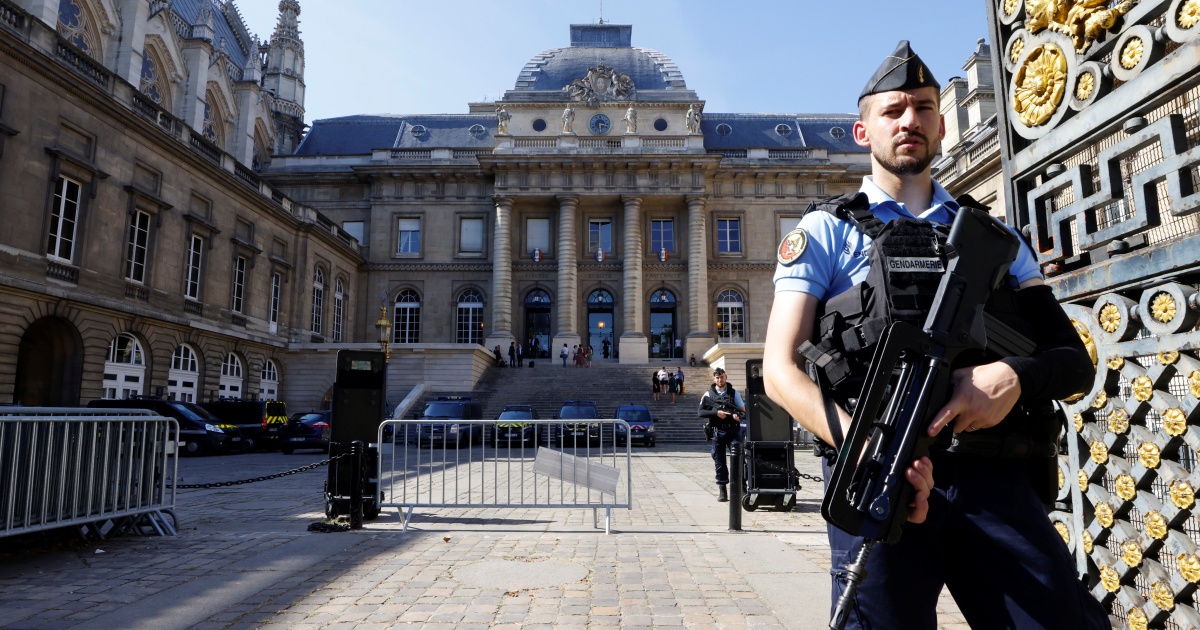Security high in Paris as biggest trial begins over 2015 attacks

French trial scheduled to last nine months, with about 1,800 plaintiffs in what is described as an unprecedented judicial marathon.
A trial of unprecedented scale starts in France under high security over the November 2015 attacks in Paris that were the deadliest in peacetime France.
Some 130 people were killed and hundreds wounded when gunmen with suicide vests attacked six bars and restaurants, the Bataclan concert hall, and a sports stadium, leaving deep scars on the nation’s psyche.
“That night plunged us all into horror and ugliness,” Jean-Pierre Albertini, whose 39-year old son, Stephane, was killed in the Bataclan concert hall told Reuters news agency.
Twenty men are due to face trial on Wednesday. With police on high alert, streets will be closed off to cars and pedestrians around the Palais de Justice courthouse on an island in central Paris, with the surrounding banks of the Seine also off-limits.
Those authorised to attend the trial will have to go through multiple checkpoints before being allowed in a specially built court and other rooms where the hearings will be broadcast.
The trial will last nine months, with about 1,800 plaintiffs and more than 300 lawyers taking part in what Justice Minister Eric Dupond-Moretti has described as an unprecedented judicial marathon. The verdict is expected in late May 2022.
The case file runs to a million pages in 542 volumes, measuring 53 metres (173.8 feet) across.
Depression, anxiety
“What I care about in the trial is the testimony of other survivors … (to) hear how they have been coping over the past six years,” said 48-year-old Jerome Barthelemy. “As for the accused, I don’t even expect them to speak.”
A survivor of the attack on the Bataclan, Barthelemy said he was doing well now but had suffered from depression and anxiety.
Responsibility for the killings was claimed by followers of the ISIL (ISIS) armed group which had urged its followers to attack France over its involvement in the fight against the group in Iraq and Syria.
Surviving gunman Abdeslam, a Belgium-born French-Moroccan, fled the scene of the carnage after abandoning his suicide belt, which investigators found to be defective.
Some 130 people were killed and hundreds wounded when gunmen with suicide vests launched an attack [File: Christian Hartmann/Reuters]
Abdeslam, now 31, was later captured in Brussels, hiding in a building close to his family home, after four months on the run.
He has resolutely refused to cooperate with the French investigation and remained largely silent throughout a separate trial in Belgium in 2018 that saw him declare only that he put his “trust in Allah” and that the court was biased.
An important question is whether he will speak at his scheduled testimony in mid-January 2022.
Abdeslam’s defence, led by lawyer Olivia Ronen, 31, has said that while the trial will be filled with emotions, the “judiciary must keep its distance if it does not want to lose sight of the principles that underpin our state of law”.
Another focus of the trial will be on how the squad of killers managed to move undetected into France, allegedly using the flow of migrants from ISIL-controlled regions of Syria as cover.
Fourteen of the accused – who face a range of charges from providing logistical support, to planning and weapons offences – are expected to be present in court.
Six more suspects are being tried in absentia. Five of them are presumed dead, mainly in air raids in Syria, including French brothers Fabien and Jean-Michel Clain.
The alleged coordinator, Belgian national Abdelhamid Abaaoud, was killed by French police northeast of Paris five days after the attacks.






